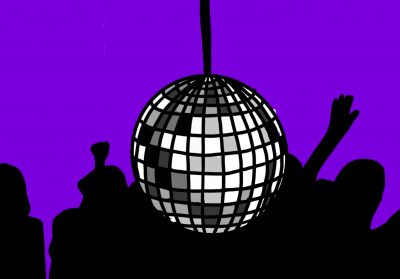As college students, it may seem trite to profess the importance of nightlife, especially with the recent end of ‘Halloweekend.’
But nightlife is more than just the ability to get drunk or see friends. Nightlife involves the freedom to share in space and cultural institutions with people within your community.

It is important to acknowledge that Boston’s nightlife — just as any social structure dominating public life — is regulated by systemic racism that prevents everyone from having equal access to a care-free night in the city.
In a Late Debate forum organized by the nonprofit Greatest MINDS last month, voters, activists, mayoral candidates Annissa Essaibi George and Michelle Wu and other City Council candidates discussed the issue of continued racism and discrimination in Boston nightlife.
Community members at the forum alleged that Boston clubs often refused to play hip-hop. This speaks to a long-held exclusion of Black-dominated cultural institutions in Boston and the continued segregation of public spaces. This problem is not new: One club promoter interviewed in a 2012 Boston Globe article noted that Boston nightclubs — in contrast to different cities — were more strict about the kind of music they played.
People at the forum also discussed how they felt dress codes at nightclubs and restaurants were designed to specifically exclude Black people.
Last July, the Boston-based Nathan Bill’s Bar and Restaurant garnered scrutiny after attention was brought to its dress code sign. Among its many provisions, the sign banned clothing associated with racist stereotypes against Black communities. President of the Springfield NAACP — Bishop Talbert Swan — stated at a rally at the restaurant that he saw the sign “as an exclusionary tactic to keep us away based upon those racial stereotypes that we have had to deal with throughout the course of history.”
Nathan Bill’s Bar and Restaurant’s history with racism extends beyond the sign incident, however. In 2015, 14 Springfield cops and the bar’s co-owner John Sullivan were charged for allegedly beating four Black men at Nathan Bill’s Bar & Restaurant, leaving the victims with significant injuries including a broken leg, knocked-out teeth and deep-rooted psychological trauma. Sullivan and the police officers were also thought to have allegedly taken part in a cover-up of the assault.
Nathan Bill’s Bar and Restaurant is simply a microcosm of a problem rampant in Boston’s nightlife at large — with seemingly benign measures like dress codes being utilized to exclude Black patrons existing alongside horrific forms of racist violence.
A 2017 study published by the Journal of Sociology of Race and Ethnicity found that nightclub dress codes across the country were systematically utilized to deny Black people entry into clubs more often than other groups. The extent of this racial discrimination neared the extent to which racial discrimination occurred in housing audits.
It is not merely a coincidence that discrimination occurred at similar rates in nightclubs and housing audits. Boston is an incredibly segregated city, ranked as the 28th most segregated city out of U.S. metropolitan areas. According to Boston’s 2020 index of dissimilarity, around 64% of Bostonians would need to move to create a city that was evenly distributed.
In the ’60s, discriminatory housing laws meant Black Bostonians only had access to mortgages in parts of Roxbury, Dorchester and Mattapan. These laws also increased financial inequality between racial groups, as the mortgage plans offered to Black communities were often inflated and unreasonable.
Segregation is continued to this day through exclusionary zoning policies, which prevent affordable housing from being constructed in certain parts of the city.
These zoning policies contribute to the lack of nightclubs across Boston, especially in neighborhoods mainly populated by communities of color. Moreover, Black-owned nightclubs have reported experiencing excessive policing through unfair noise complaints and being blamed for fights that occurred in nearby streets.
Small nightclub owners are further hindered by the costly process of obtaining a liquor license. As Mayoral candidate Wu stated in the forum, only eight Black-owned restaurants owned liquor licenses in the entire city.
The reason why these licenses are so expensive is related to the fact that Massachusetts places a cap on the number of liquor licenses it allows. As it is extremely difficult to obtain a liquor license directly from the state due to this cap, businesses instead purchase their licenses on the secondary market at exorbitant prices.
A 2017 study conducted at Tufts Urban and Environmental Policy and Planning center found that liquor licenses are mainly distributed to white and wealthy locations and that one’s race and financial status are “significant predictors of liquor license distribution.” The study also described liquor licenses as being important to allowing economic development in a neighborhood.
The systems through which legal, criminal and financial procedures restrict Black Bostonian’s freedom to share in community and culture cannot be overstated. Nightlife is not a trivial issue. The structures that restrict it are part of a broader system that continually enforces racial discrimination across the city.
Being able to be in a community with other people and share in different cultural practices is vital to encouraging Boston to thrive — not as a city of disparate neighborhoods, but as an honest community, open and accessible to all of its residents.





















































































































